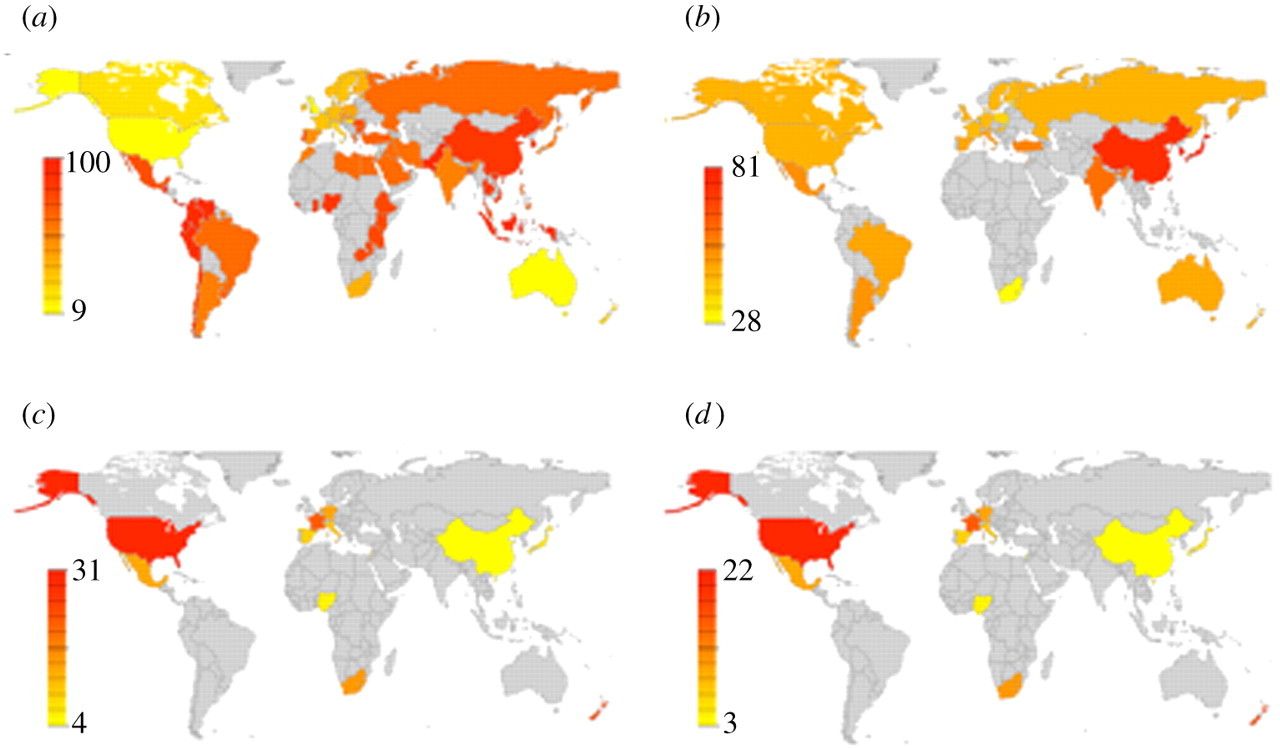The influence of "individualism" and "collectivism" on mental health | Serotonin transporter gene research
The opportunity to write this note today is to read this study : Culture-gene coevolution of individualism-collectivism and serotonin transport gene Joan Y. Chiao and Katherine D. Blizinsky. 2009 Culture-gene coevolution of individualism-collectivism and the serotonin transporter gene
A brief introduction to Serotonin: Serotonin /serotonin/serotonin/5-HT are generally considered contributors to happiness and feelings of pleasure. About 90% of the body's total serotonin is located in the chromaffin cells in the gastrointestinal tract, where it regulates bowel motility. The remainder is synthesized in serotonergic neurons in the central nervous system, where it has various functions, including regulation of mood, appetite, and sleep. Serotonin also has some cognitive functions, including memory and learning. Regulates serotonin at synapses and is thought to be the primary action of several classes of antidepressant drugs.

The researchers created the chart above. For these four maps, the colored sections show published data, and the gray areas have no data available.
- a) Red countries are more collectivist, yellow countries are more individualistic
- b) The S allele of the human serotonin transporter (5-HTTLPR) occurs more frequently in red countries, and vice versa in yellow
- c) People in red countries have higher levels of anxiety, and vice versa in yellow
- d) People in red countries suffer more from mood disorders, and vice versa in yellow
Taking the United States and China as examples, more people in the "individualistic" United States suffer from anxiety and mood disorders, while in the "collectivist" China, there are fewer patients with anxiety and mood disorders.
The first reaction I wrote here was that the data might be unreliable... China's mental health services/academia lags far behind compared with the United States. Maybe there are many people who suffer from anxiety and depression, etc., and fail to seek help. Naturally, Will not be diagnosed, included in the statistics.
In any case, I find the contrast between "individualism" and "collectivism" to be a very interesting subject.
Could Individualism Cause More Anxiety and Mood Disorders? Individualism is associated with loneliness, low social support (Triandis, Leung et al, 1985), family conflict, and a high chance of divorce (Brodbar and Jay, 1986). It tends "to predispose people to alienation and narcissistic self-absorption, and to induce them to pursue narrow self-interest (Spence, 1985, p. 1293)." The extreme competitiveness of individualists Can lead to anxiety (Am I doing enough?) and frustration (Am I not doing well enough).
Could collectivism be good for physical and mental health? Homicide, drug use, divorce and suicide rates are also lower when people are emotionally attached to others. In a collectivist society, people often have no choice but to communicate frequently with relatives, friends and colleagues, even if it is not pleasant, and these exchanges also relieve loneliness.
But conversely, some of the worst aspects of collectivistic parenting are eroding children's self-esteem and making them conform but uncreative adults. In a collective society, people may face the contradiction between "obligation burden" and "pursuit of self-realization", and often have to suppress their desires.
At the same time, individualism represents attention to human rights; democracy; multiculturalism that can exist in a society; and a focus on creativity, freedom, conquest, and achievement. Individualists have high levels of self-efficacy. Their high self-esteem makes them more likely to attempt risky activities, so achievement is often associated with individualism.
The world is certainly not black and white. Every society has individualists and collectivists, and each person will also favor individual or collective interests in different situations. Both extremes are bad, and history has taught us a hard lesson.

The East leans towards collectivism and the West leans towards individualism, which is basically a world consensus. Different biases are not only manifested in political systems, but also permeate culture and everyday life. But why? Since when? Can it be traced back to primitive tribes?
Also, German society's place on this collective-individual spectrum is rather delicate.
Human society is truly amazing.
refer to
Joan Y. Chiao and Katherine D. Blizinsky. 2009 Culture–gene coevolution of individualism–collectivism and the serotonin transporter gene. Proc. R. Soc. B.277529–537 http://doi.org/10.1098/rspb.2009.1650
https://en.wikipedia.org/wiki/Serotonin
Analysis of the advantages and disadvantages of "individualism" and "collectivism"
Like my work? Don't forget to support and clap, let me know that you are with me on the road of creation. Keep this enthusiasm together!
